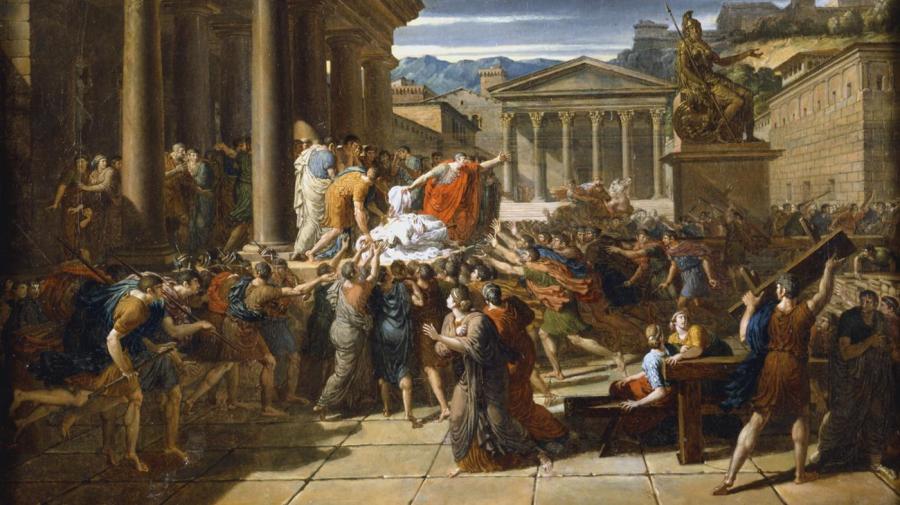Dramatic Irony In Julius Caesar
What Is an Example of Dramatic Irony in "Julius Caesar"?

An case of dramatic irony in "Julius Caesar" by William Shakespeare is when Caesar is warned well-nigh the Ides of March by the soothsayer. Dramatic irony occurs when the audience knows something that the character does not know. In this scene, the audience recognizes that the Ides of March is the twenty-four hours Caesar dies, only Caesar himself does not know this and ignores the warning, which results in his death.
Irony is a term in literature used to describe something that is not as it seems. It could be a situation, place or discussion. In that location are several types of irony: dramatic, exact, situational and cosmic. Shakespeare employed irony often in his plays. In addition to dramatic irony, "Julius Caesar" contains verbal irony, which is when the audience knows that the opposite of what the character is proverb is the truth. Marc Antony refers to Brutus as an honorable man, only the audition knows that Brutus is in fact dishonorable.
"Julius Caesar" was written around 1599. It is one of Shakespeare'due south history plays and tells of the conspiracy against and bump-off of Julius Caesar in 44 B.C. While he is the title character, Caesar appears in but five scenes throughout the play. The majority of the play consists of Brutus and his co-conspirators.
Dramatic Irony In Julius Caesar,
Source: https://www.reference.com/world-view/example-dramatic-irony-julius-caesar-dd9758adbdb372fe
Posted by: youngknoble.blogspot.com


0 Response to "Dramatic Irony In Julius Caesar"
Post a Comment